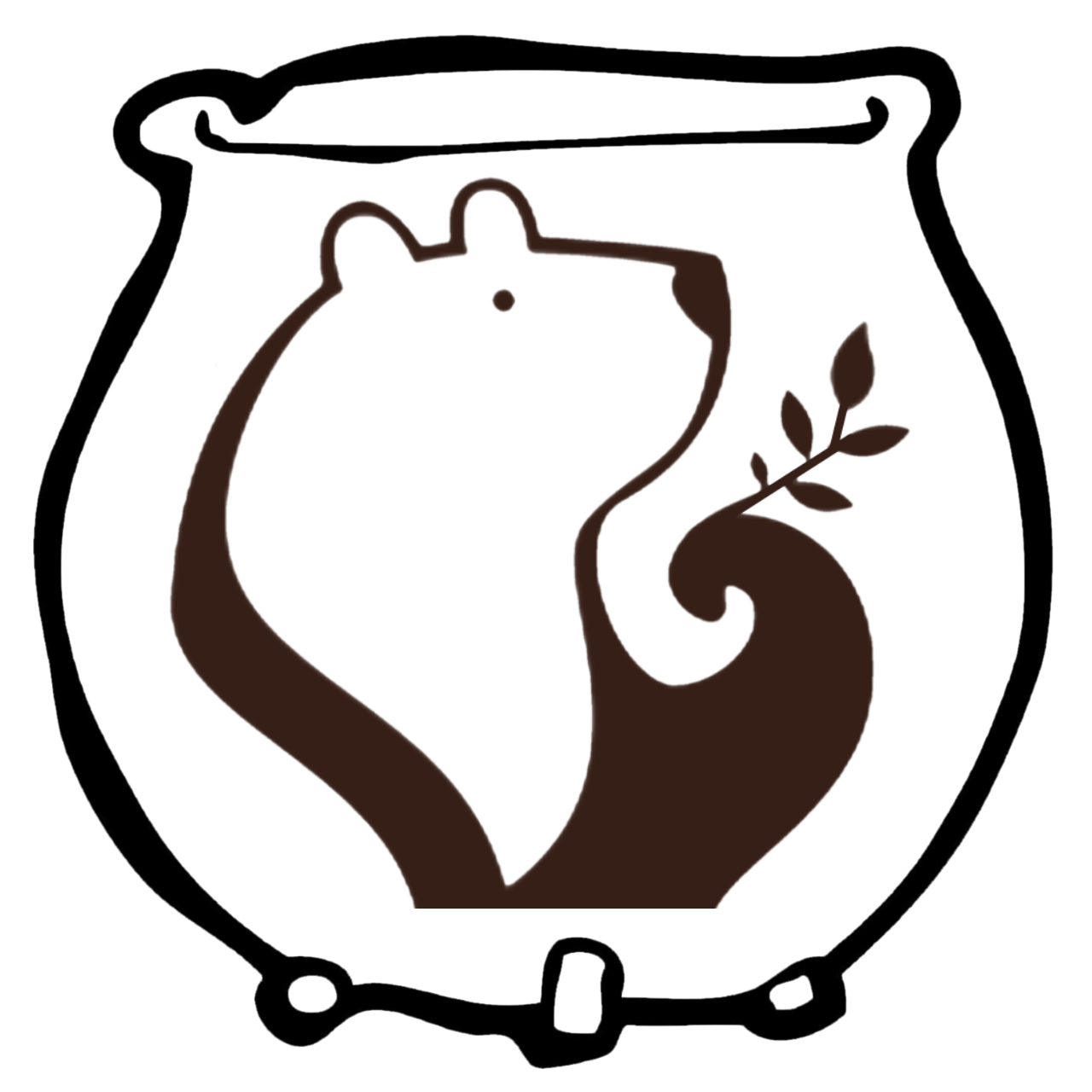Ginger
The Staghorn Root
I ate a spicy ginger
from my brother on a dare.
the ginger caught my head on fire
and burned off all my hair
My mouth disgorged lava
and my tongue began to melt
my ears were shooting jets of steam
at least that’s how they felt
I spring back around the room
i ran across the ceiling
i buzz right in the freezer
to relieve the burning feeling
I drank a thousand soda pops
and chewed a ton of ice
to try to stop the scorching of that spicy ginger’s spice
Finally, the flames extinguished,
i admitted to my brother,
“that ginger was the best one yet
may i please have another?
Ginger is an old Chinese man, upright, honorable, wise and a bit sharp. He has acquired all this knowledge over hundreds of years and is eager to share it. Strong with a slightly irreverent side, this venerated herb has a strong sense of ethics. A life well lived to him is one of both virtue and joy. Tall and thin, Ginger grows about four feet high. His reed-like stalks have handsome narrow green leaves and culminate in buds that flower into yellow blossoms. But Ginger is more than meets the eye. His stately appeal goes all the way down to his roots, or in this case, his rhizome. After the flower blooms and his showy days are behind him, the stalks whither. This is when he is at his best for harvesting. This sweet and spicy old man still has a great deal to offer, for those who are inclined to listen to the wisdom of the elders.
The Magic of Ginger
Correspondences
Element: Fire
Gender: Masculine
Sabbat: Yule
Planet: Mars, Sun
Chakra: Root, Solar Plexus
Spellwork
Activate
Heal
Luck
Money
Sex
Proverb
Chinese: Born to be like ginger, the older, the spicier.
The Medicine of Ginger
Ayurvedic
Ayurvedic Name: Adrak
Vata: Pacify
Kapha: Pacify
Pitta: Increase
Taste: Pungent
Herbology
Antiemetic
Antiviral
Anti-inflammatory
Carminative
Sialagogue
Antispasmodic
Circulatory Stimulant
Infusion: 1 cup of boiling water to 2 slices herb
TCM
TCM Name: Sheng jiang
Botanical Name: Zingiber officinale
Common Name: Ginger Root
Energy: Warm
Flavor: Spicy
Organs: Lung, Spleen, Stomach
Movement: Herbs that Release the Exterior
Science of Ginger
Botany
Botanical Name: Zingiber officinale
Family: Zingiberaceae (Ginger Family)
Type of Plant: Herbaceous perennial
Habitat: Hot, Humid, Part Sun
Zone: 9-12
Bloom Time: Seasonal
Height: 2-4 feet
Spread: 2-4 feet
Propagation: Divide Rhizome
Harvest: Fall, Winter
Part Used: Root
Constituents: Zingerone, Gingerols, Terpenoids, Lipids
Native Region: South Asia
Sustainability: Good
Leaf
Structure: Simple
Arrangement: Alternate, 2 vertical rows
Shape: Elongate
Length: 6-12 inches
Margins: Entire
Surface: Ribbed
Flower
Inflorescence: Compound, spikes
Sexuality: Imperfect monoeceous
Stamen: up to 6 in whorls
Petals: 3 sepal, 3 petals
Color: Yellow, Green, Purple
Size: 2-3 inch
Sacred Story
The Kama Sutra, written by a celibate monk named Mallanaga Vatsyayana, is predominently a guide to virtuous and gracious living, although its reputation is as an infamous handbook of love and all things sex. The seventh chapter offers information on aphrodisiacs, herbs, and spells. It is here that ginger is highlighted as a powerful aphrodisiac. It certainly does warm up the body and increase the heart rate.




